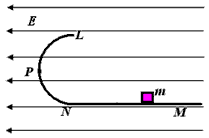简述艺术与时代精神。
参考答案:
艺术家总是生活在一定的时代氛围中,那个时代的物质生活和精神生活总要以时代特征在每一个艺术家及其艺术作品中留下深刻的印记。同一时代艺术家及其风格尽管各不相同,但又或多或少呈现出某些共同的特征。这种风格的共同性并非艺术家的自觉追求,而是时代氛围的客观条件造成的。雪莱曾说:“我避免摹仿当代任何作家的风格。但是,在任何时代,同时代的作家总有一种近似之处,这种情形并不取决于他们的主观意愿。他们都少不了要受到当时时代条件所造成的某种共同影响。”比如“五四”时期,中国作家和艺术家的作品普遍都有一种对自由、民主、光明、幸福的新中国的热烈向往;都有一种对旧社会、旧制度、旧道德的无法忍耐,要掀翻旧世界的决心与豪情;都有一种集诗人与战士为一身的伟大气质。这是由五四时代共同的文化氛围造成的。时代风格可以表现在作品题材上。由于每个时代的艺术家总是置身在时代的潮流中,为他们生活的时代而进行创作。这样就形成为每个时代的艺术所特有的、并占据主导倾向的创作题材。时代风格也可以表现在时代主题和时代精神上。时代的生活不仅为一定时代的作品提供了该时代所特有的生活内容,同时也形成了该时代文学所特有的思想内容。第二次世界大战后,世界艺术有一种强烈的反思色彩,现代文明的启蒙精神在第二次世界大战中遭受严重质疑。从文学到绘画,从音乐到电影,各种艺术都在思考人类的命运,思考人类伦理和道义的底线,思考人性的光明与黑暗。这种时代风格与中国建安时代和盛唐时代的艺术风格迥然不同。
时代风格还在艺术作品的形式方面形成鲜明的特色。比如,现代艺术较之古典艺术,在表现方式上,诸如叙事节奏、视点选择、外观材料、结构变形等方面,都倾向于对人们内心世界的探索和呈现。通过艺术形式,我们也多少能够判断艺术作品所处的时代。

